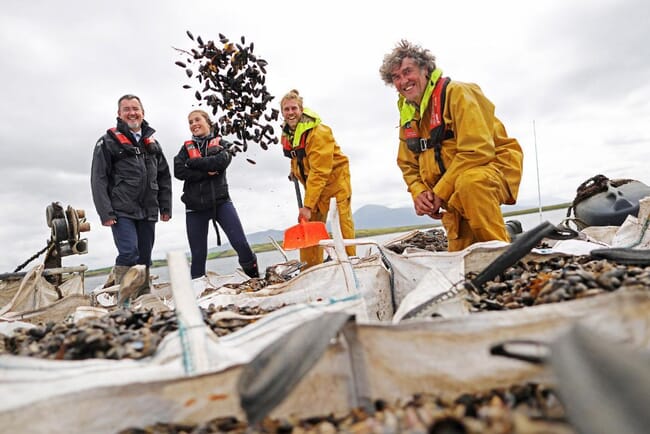The fishery, which is run by Ireland’s seafood development agency, Bord Iascaigh Mhara (BIM), joins the Irish bottom grown mussel fishery, which achieved certification in 2013.

Jim O’Toole, CEO of BIM, spoke of the collaborative, cross-industry approach taken by BIM to achieve this result and said: “BIM’s strategy is to enable sustainable growth of the seafood sector in Ireland. The prestigious certification achieved allows for a unique national approach where all mussel growers operating in licensed harvest locations in Ireland can now label their mussels with the MSC ecolabel, showing that they are MSC certified as sustainable and from a well-managed fishery. Ireland’s mussel industry is export focussed and MSC certification of Irish rope grown mussels provides valuable evidence to the marketplace of the sustainable environment in which our seafood is produced. This recognition by the MSC means our seafood is produced to the highest standard and protects our aquaculture for future generations.”
O’Toole celebrated the announcement during a visit to Blackshell farm in Westport, Co Mayo. He was joined by Jo Pollett, MSC UK and Ireland, and mussel farmer, Michael Mulloy, Blackshell Farm Ltd, who is also chair of IFA Aquaculture.
Jo Pollett, MSC senior fisheries outreach officer, UK and Ireland, said: “This is a significant achievement and great news for Irish mussels. BIM has shown ambition and leadership in pushing for the sustainability of Irish fisheries. We’re really excited to have this fishery as part of the MSC programme and look forward to a healthy future for Irish mussels.”
The Irish mussel industry was valued at €11.7 million in 2018, of which the rope grown sector produces roughly 9,000 tonnes each year.

